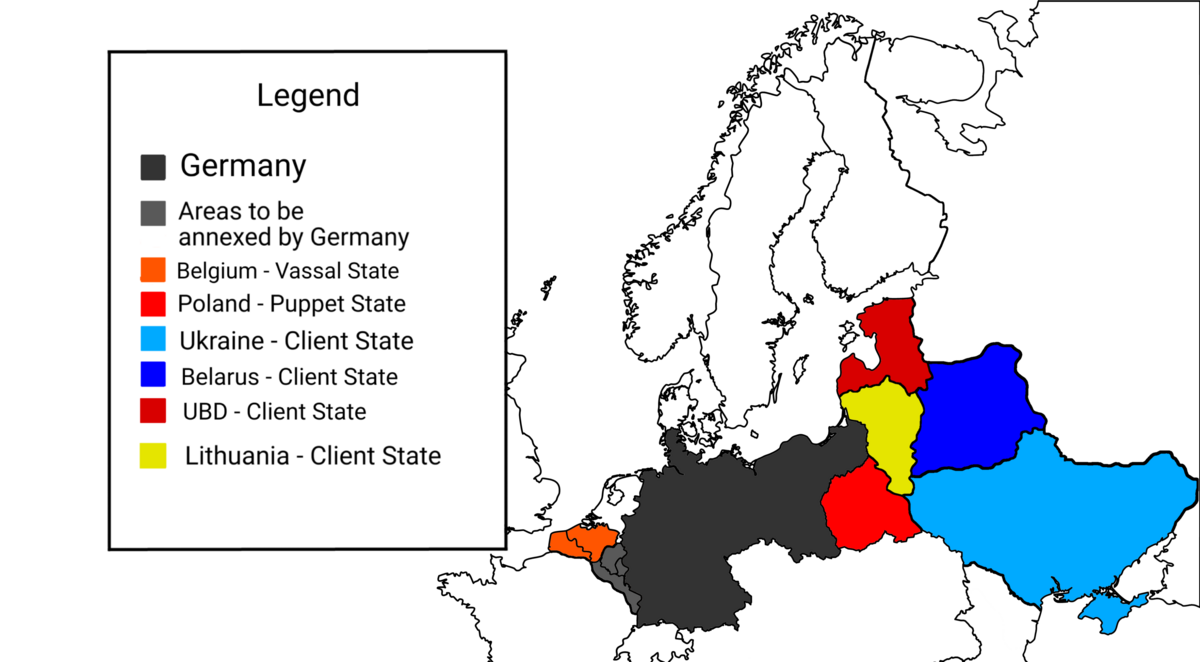Devvy
Donor
Hey, I've been reading a load of threads about the possibility of the Germans either capturing or sieging Paris quickly after the start of the World War 1 - a lot get bogged down in the specifics of the 1914 military manoeuvres, but I'd rather skip that part. Let's assume it does - at the very least, Paris is less than ideal as the economic/logistical/political centre of France, whilst iron and coal fields of northern France now lie in German hands. My assumption is that France falls back, whilst refusing to sue for peace for at least a few months, before realising in 1915 that the game is up. The Germans don't need to advance further in to France - they've destroyed the French ability to battle with Germany, granted Germany a freehand to assist Austria-Hungary against Russia in the east, and all the potential client states in the east.
My question is...what happens next, on a global scale?
I'd guess France is forced to completely accept Alsace-Lorraine as German territory (and maybe some extra areas of Lorraine?), whilst Luxembourg also becomes part of the German Empire. Italy might want a slice of Nice or Savoy?
Given that the UK declared war on Germany due to the trampling of Belgium's neutrality, I guess Germany might use the restoration of Belgium to get the UK to cease war? Although I also see German desires to Belgium to become a German protectorate/vassal of some kind.
Overseas by 1915, SW Africa is basically taken by South Africa, and Kamerun is all but taken by Anglo/French forces. Tanganyika is still German though. Given that they have no way to force the UK to peace, is there any point in taking French/Belgian colonies given a) they can take on a ton of conquests in eastern Europe and b) they have to potentially battle an unfriendly Royal Navy to get to the colonies if negotiations go poorly.
Can the British stomach Italian desires for Tunisia, given that it may place a stranglehold on shipping through the Med to the Suez? And then, I guess this pushes France further in to the arms of Britain, and potentially lays the ground for closer UK/Netherlands too?
And lastly, a war which is basically over by late 1915 leaves the door open for almost any possibility in Ulster and by extension Ireland as it's prior to the Easter Rising.
My question is...what happens next, on a global scale?
I'd guess France is forced to completely accept Alsace-Lorraine as German territory (and maybe some extra areas of Lorraine?), whilst Luxembourg also becomes part of the German Empire. Italy might want a slice of Nice or Savoy?
Given that the UK declared war on Germany due to the trampling of Belgium's neutrality, I guess Germany might use the restoration of Belgium to get the UK to cease war? Although I also see German desires to Belgium to become a German protectorate/vassal of some kind.
Overseas by 1915, SW Africa is basically taken by South Africa, and Kamerun is all but taken by Anglo/French forces. Tanganyika is still German though. Given that they have no way to force the UK to peace, is there any point in taking French/Belgian colonies given a) they can take on a ton of conquests in eastern Europe and b) they have to potentially battle an unfriendly Royal Navy to get to the colonies if negotiations go poorly.
Can the British stomach Italian desires for Tunisia, given that it may place a stranglehold on shipping through the Med to the Suez? And then, I guess this pushes France further in to the arms of Britain, and potentially lays the ground for closer UK/Netherlands too?
And lastly, a war which is basically over by late 1915 leaves the door open for almost any possibility in Ulster and by extension Ireland as it's prior to the Easter Rising.

